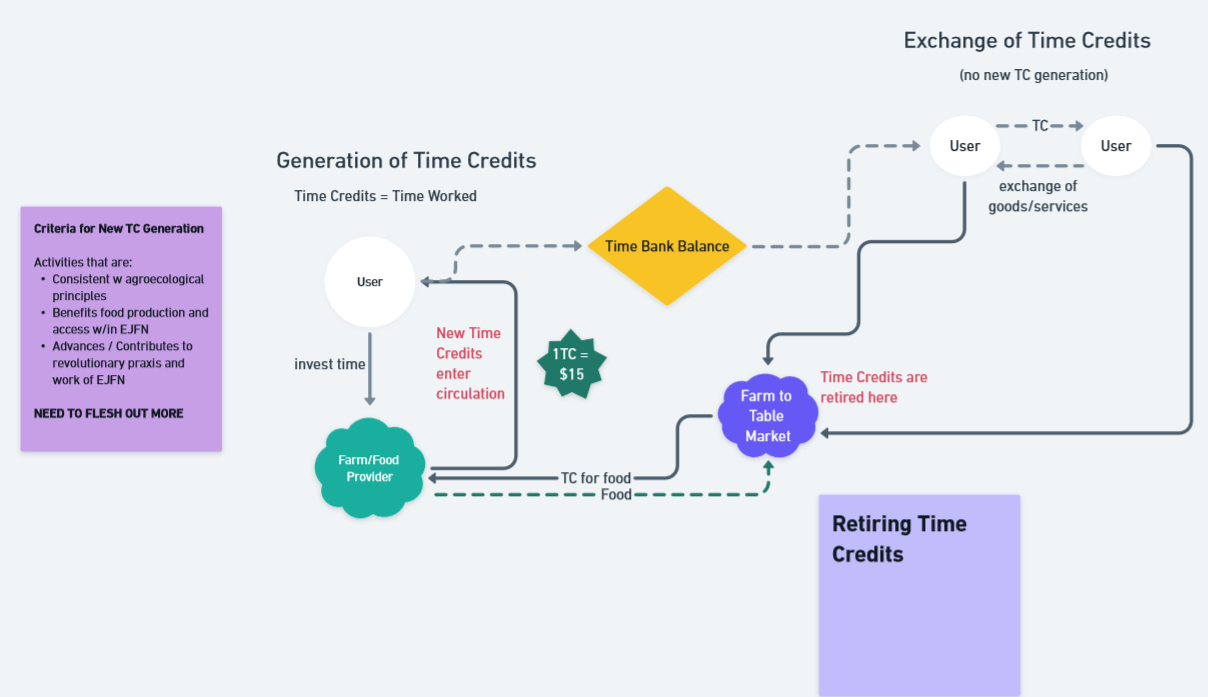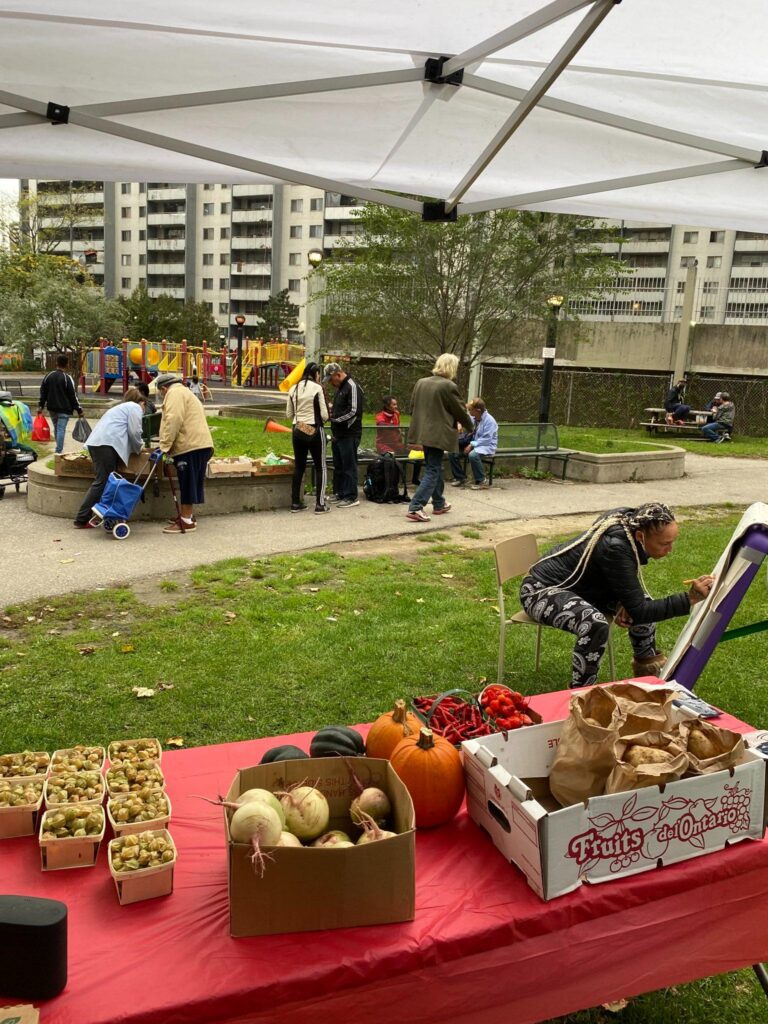
One of the core beliefs of the Eco Just Food Network is that the labour, time and energy that people routinely invest into the care of their family, community, the common good, and the public interest are inherently valuable and crucially important; in fact, we believe these typically underappreciated efforts to be the basis of the wealth and health of our communities, as well as the foundation from which to build any movement serious about creating meaningful alternatives to our current systems!
Capitalism, the current system we all know and hate, refers to the dominant economic model dictating how most of the world’s societies – including our own – organize the production and distribution of the things people want and need to survive (food, shelter, commodities, etc.). Capitalism is a system based around the privatization of common land and resources and the private extraction of surplus value from other people’s work. For these reasons, it is both conceptually (by design) and observably incapable of meaningfully recognizing labour that goes towards building social capital. Under capitalism, a person’s labour is valued only insofar as it furthers the accumulation of wealth into private hands. For useful examples, we need look no further than the history of unrecognized child-rearing labour and other work performed in the home – certainly, we all recognize the importance of this work for the well-being of our society, yet we have adopted a system which seems incompatible with this belief.
At Eco Just Food Network, we do not believe a system as expansive and powerful as capitalism – which informs so much about how our society was created and is maintained – can be ignored. However, while we recognize the oppressive systems in which we all operate, we also believe in the revolutionary effort to envision and embody alternatives to these systems and their values! This is why one of our core values is that the building of social capital in a community is paramount to the maintenance of its health and wellbeing, and that the ongoing labour that goes into this needs to be recognized and rewarded.
In our strategic visioning sessions earlier this year, EJFN asked ourselves how we could, through our work, foster, motivate and reward people for their time and effort that is rooted in building the health and wealth of our communities. When we searched for our shared core values, we found community care, mutual aid, reciprocity, and social connection to form the heart of our collective word cloud. When it came to our work, we saw our Time Bank and Food Corps programs as the vehicles through which we could embody these values.
The Food Corps is a program through which EJFN connects small producers and agroecological farmers with folks who are living in the city and are looking to practice, participate in, or learn about sustainable production and distribution. These folks come out in teams of anywhere from four to 10 or more (depending on the needs and request of the farmer/producer) and participate in our ongoing efforts to build local sustainable and resilient food systems! In turn, they are rewarded for their participation in this productive labour with one time credit (TC) for every hour they work.

In order for a person’s efforts to generate a new time credit, EJFN has decided that it must be rooted in what we call productive labour, meaning it must meet at least one of these three main criteria:
- The work is consistent with agroecological principles
- The work benefits food production and access within EJFN
- The work advances or contributes to the revolutionary praxis of EJFN
Having the generation of new time credits be rooted in productive labour that advances food production and social capital ensures that, unlike with the dollar or other conventional monetary currencies, our time credits are intrinsically tied to real value that benefits real people in the real world. Consequently, our system is able to avoid the inflation typically arising from the creation of new fiat dollars – a federal reserve or bank (e.g. Bank of Canada) can typically print money regardless of what conditions exist in the labour force or market place, thereby lowering the value of the dollar. Moreover, through our time banking system, EJFN is able to reward the work which helps our communities or advances the revolutionary struggle of food sovereignty!

During the growing season, EJFN participates in setting up pop-up farmer’s markets where we sell the produce or goods that the small producers in the network and our Food Corps team have been labouring on – this gives an opportunity for folks who have earned time credits to come to the pop-up and redeem their TC for $15 worth of food – not just any food, but food they’ve collectively played a part in producing!

This is not “the revolution”. However, EJFN is deeply invested in building revolutionary alternatives to the systems which have been failing us (and the planet) for decades! We hope projects like these will inspire others to join the food sovereignty movement – whether it’s with EJFN or somewhere local to you – and help us play a part in showing that a better world is not only possible, but that we can build it together!
In Solidarity,
Dragoș
EJFN Organizer
One response to “On the Nature of Our Collective Work: Intro to Food Corps and Time Bank”
pls feel free to comment ilu